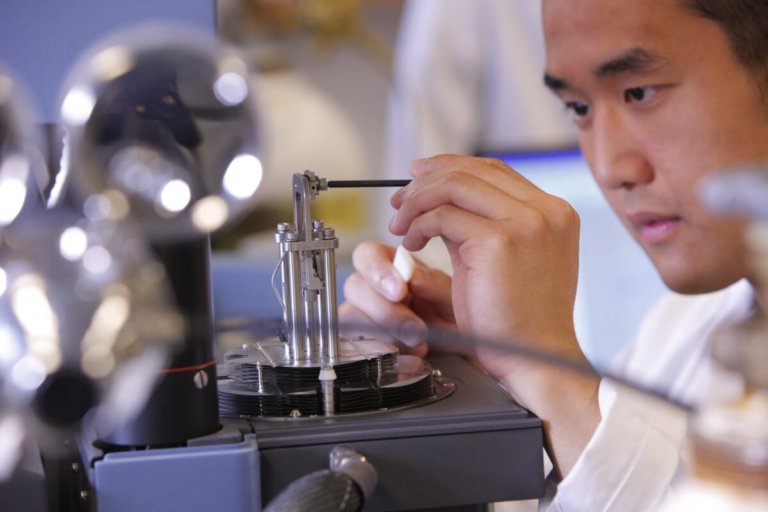
In today’s higher education landscape, the academic focus is no longer just on theoretical knowledge. More and more programmes are offering more opportunities for students to ‘learn through doing’, or in other words, engage in practical learning.
Blending theory with practice is immensely beneficial, giving students a deeper understanding of a subject matter while cementing their understanding through hands-on activities.
By applying knowledge through engaging in real-world projects, students don’t just improve their learning but also boost their employability.
In today’s competitive workplace, students are looking for academic programmes in which they earn much more than a degree.
They also want to develop skills increasingly sought by employers, such as analytical skills, critical thinking skills, innovative thinking, and collaborative thinking.
These skills are best developed through real working world scenarios, which is where the university comes in.

University of Oregon
Higher education providers are offering industry-linked projects, internships, field work and more as part of the course structure, so students have valuable work experience that makes them more attractive to employers.
The merging of theory and practice is being seen across the board in higher education, meaning it’s gaining traction across all kinds of academic programmes and departments.
But experiential learning looks different depending on the department. While for business students, it means workshops or internships, those in the Sciences benefit from early exposure to lab settings where they can learn through hands-on research.
Here are four universities that provide the ideal blend of theory and practicum in the study of natural sciences to increase a student’s employability factor.
DIVISION OF NATURAL SCIENCES, UNIVERSITY OF OREGON – USA
The need for creative problem-solvers is increasing across the natural sciences. Graduates with degrees in fields like biology, earth sciences, environmental science and chemistry are working in professions dealing with health innovations and climate change; graduates in computer science, maths and physics are in high demand in data analysis and communications.
The University of Oregon’s science programmes feature top-notch classroom and lab instruction, combined with learning by doing research side-by-side with faculty and postgraduate students. The size of the university – big enough to have the resources needed for cutting edge research, yet small enough that undergraduate students gain experience in faculty labs – helps make this combination of in-class education with laboratory and field work possible.
Oregon’s faculty teach and research in fields including Biology, Chemistry and Biochemistry, Human Physiology, Earth and Environmental Science, Physics, Maths, Computer Science and Psychology. Areas of particular interest include microbiology, data science, neuroscience, quantum computing, athletic medicine, cybersecurity, volcanology and evolution.
![]() FACULTY OF SCIENCE, UNIVERSITY OF OTTAWA – CANADA
FACULTY OF SCIENCE, UNIVERSITY OF OTTAWA – CANADA
At this university in Ottawa, Canada, the Faculty of Science actively encourage undergraduate students to get immersed in research from the get-go.
Beside learning from faculty members who are engaged in cutting-edge research projects, the Research Focus programme provides immersive experiences where students join a research lab to carry out research during their final two academic years.
Through this experience, students hone their technical skills while learning how to develop research ideas, design experiments, and analyze and communicate scientific data.
By the end of the programme, students are prepared to hit the ground running in a graduate research degree, or they can apply their research, analysis and communication skills across a range of other careers.
There are also several other research opportunities, such as international internships, scholarships and Connecting Young Minds – a bilingual conference for students in the Faculty of Science which connects students who share a passion for discovery.
COLLEGE OF SCIENCE AND TECHNOLOGY, TEMPLE UNIVERSITY – USA
Students in the College of Science and Technology at Temple University take full advantage of the Undergraduate Research Program.
Here, students work directly with experienced researchers on real-world projects while gaining undergraduate credit during the semester or paid research work during the summer.
The college consists of six departments and three centres for advanced research and education, with over 230 full-time faculty members.
Students also benefit from the college’s Office of Student Professional Development, which hosts the CST Job Fair and provides career counseling, resources, job and internship listings and potential connections to employers.
The Science Scholars Program also grants incoming students and sophomores the opportunity to participate in paid summer research and academic or professional development experiences, where they can also receive research funding.
There are also a number of international research opportunities and off-campus opportunities with nationally-recognised organisations in which students gain hands-on learning.
![]() MELLON COLLEGE OF SCIENCE, CARNEGIE MELLON UNIVERSITY – USA
MELLON COLLEGE OF SCIENCE, CARNEGIE MELLON UNIVERSITY – USA
The Mellon College of Science (MCS) is embroiled in innovative and interdisciplinary research that tackles the most pressing problems in the scientific world.
With a strong focus on interdisciplinary research, faculty members collaborate with other departments at the university and those from around the world.
Undergraduate students are viewed as an integral part of the research team and are encouraged to engage in research-based activities from their first year.
The Core Education program ensures students graduate as well-rounded, young scientists who are well-prepared to enter the workforce or pursue further education.
During their first year, learners participate in the seminar The EUREKA: Discovery and Its Impact, which equips them with foundational knowledge, skills and perspectives that supports their development as emerging scientists.
In their junior year, students at MCS are required to participate in the seminar PROPEL (Preparation, Readiness, and Optimization for Professional Excellence in Life), where they gain life skills to do with interviewing, networking and preparing for professional careers in the world.
*Some of the institutions featured in this article are commercial partners of Study International
Liked this? Then you’ll love…
Education, discovery and innovation in the Pacific Northwest
5 best universities in the world for Life Sciences and Medicine









